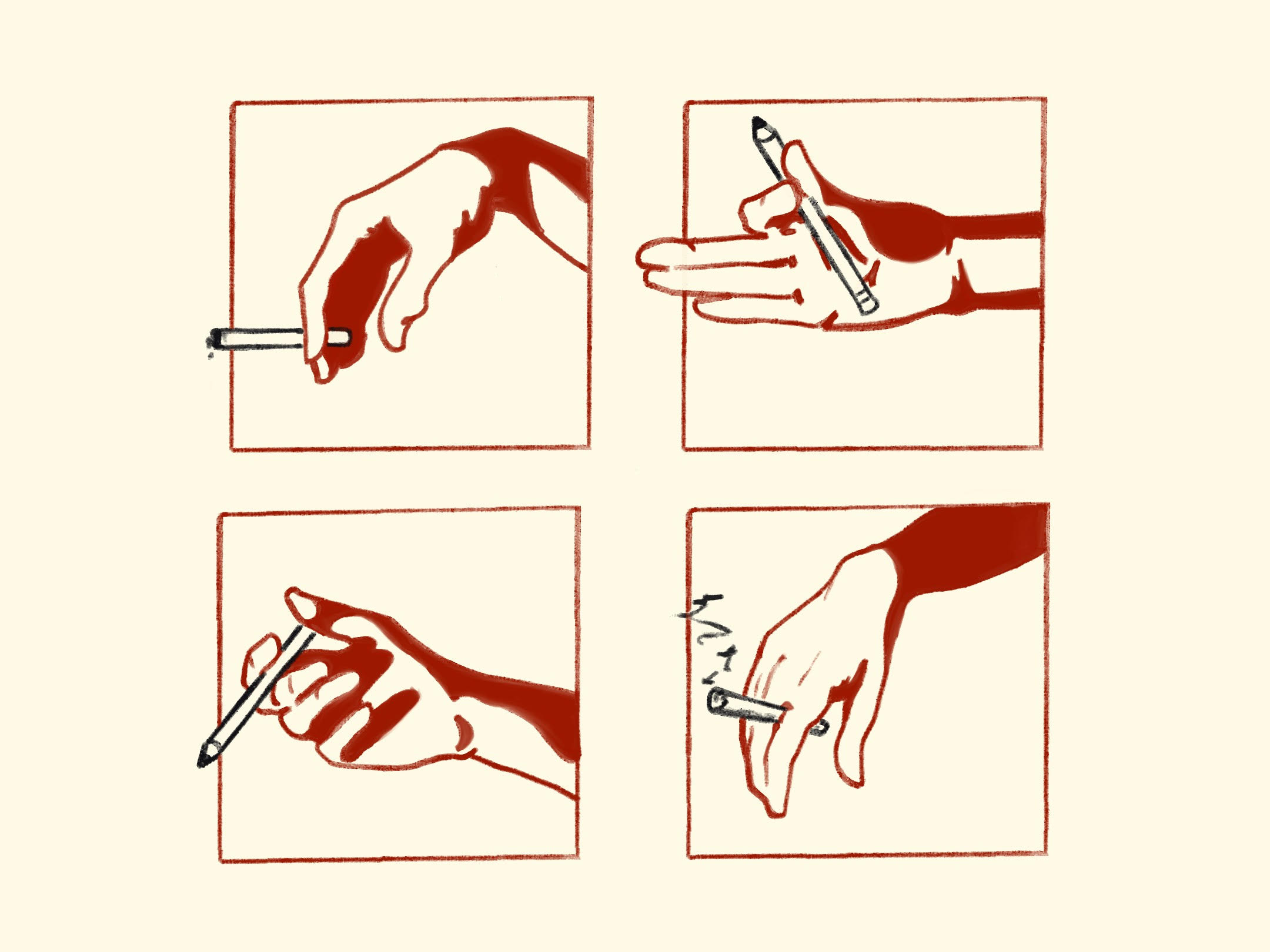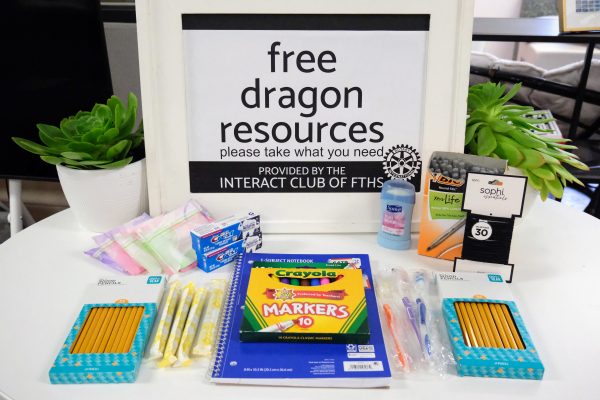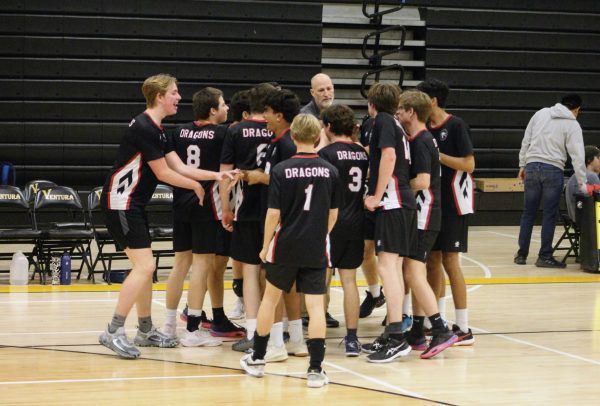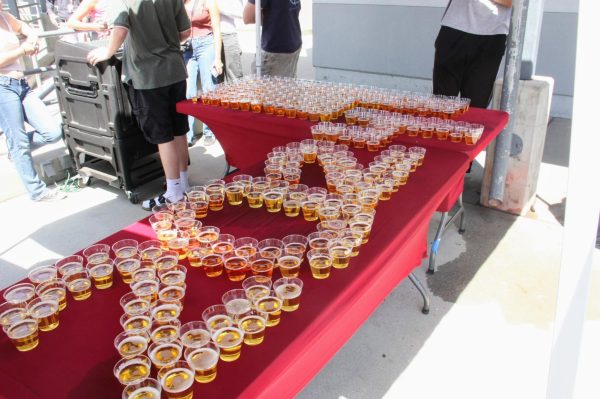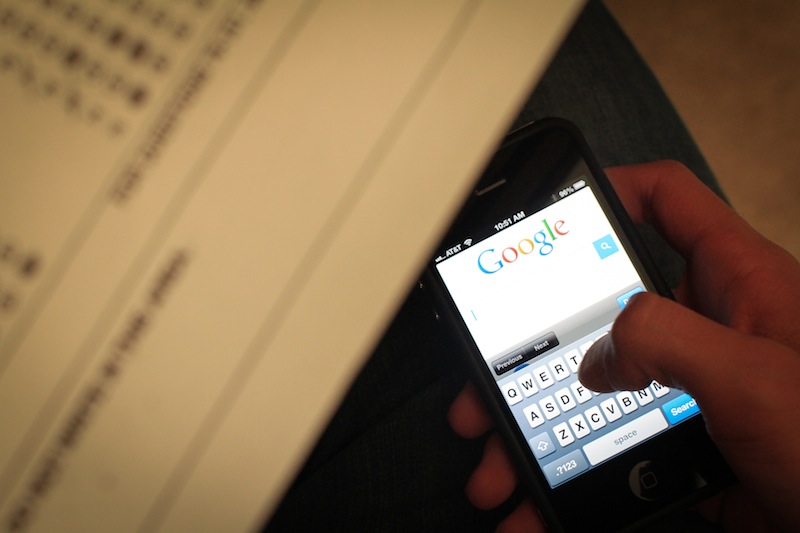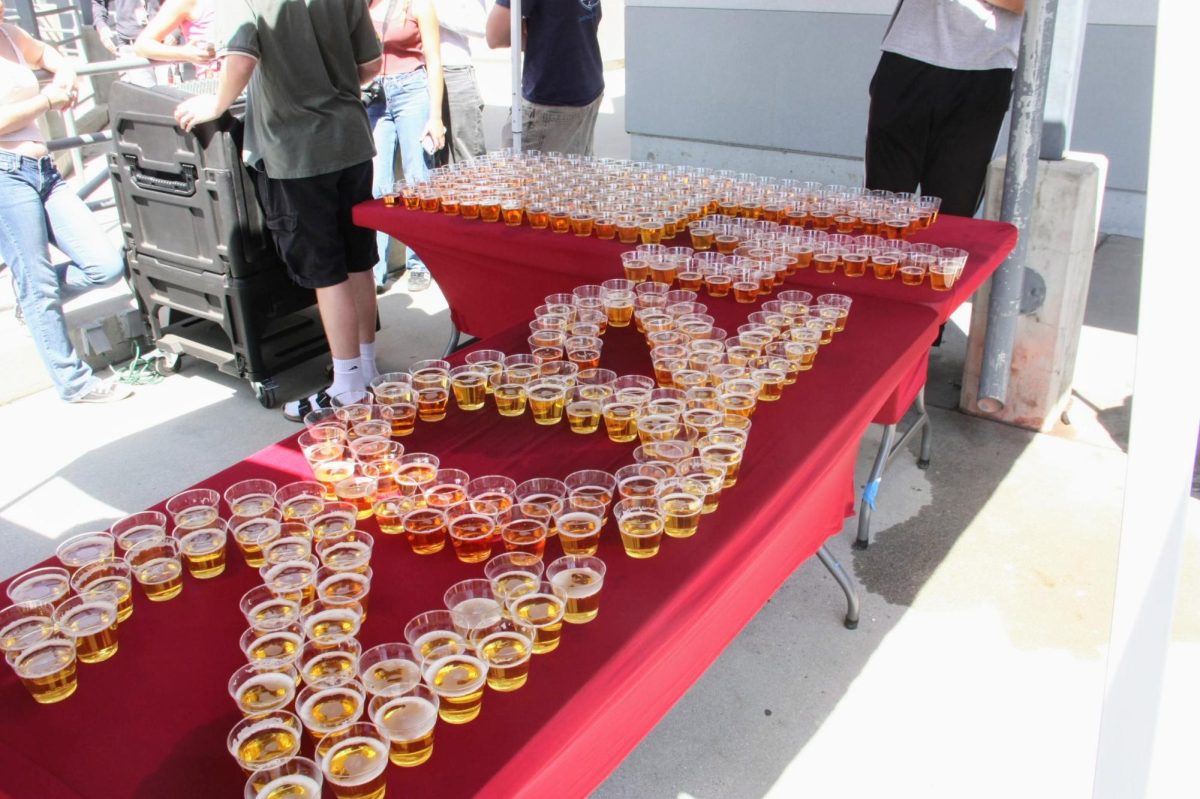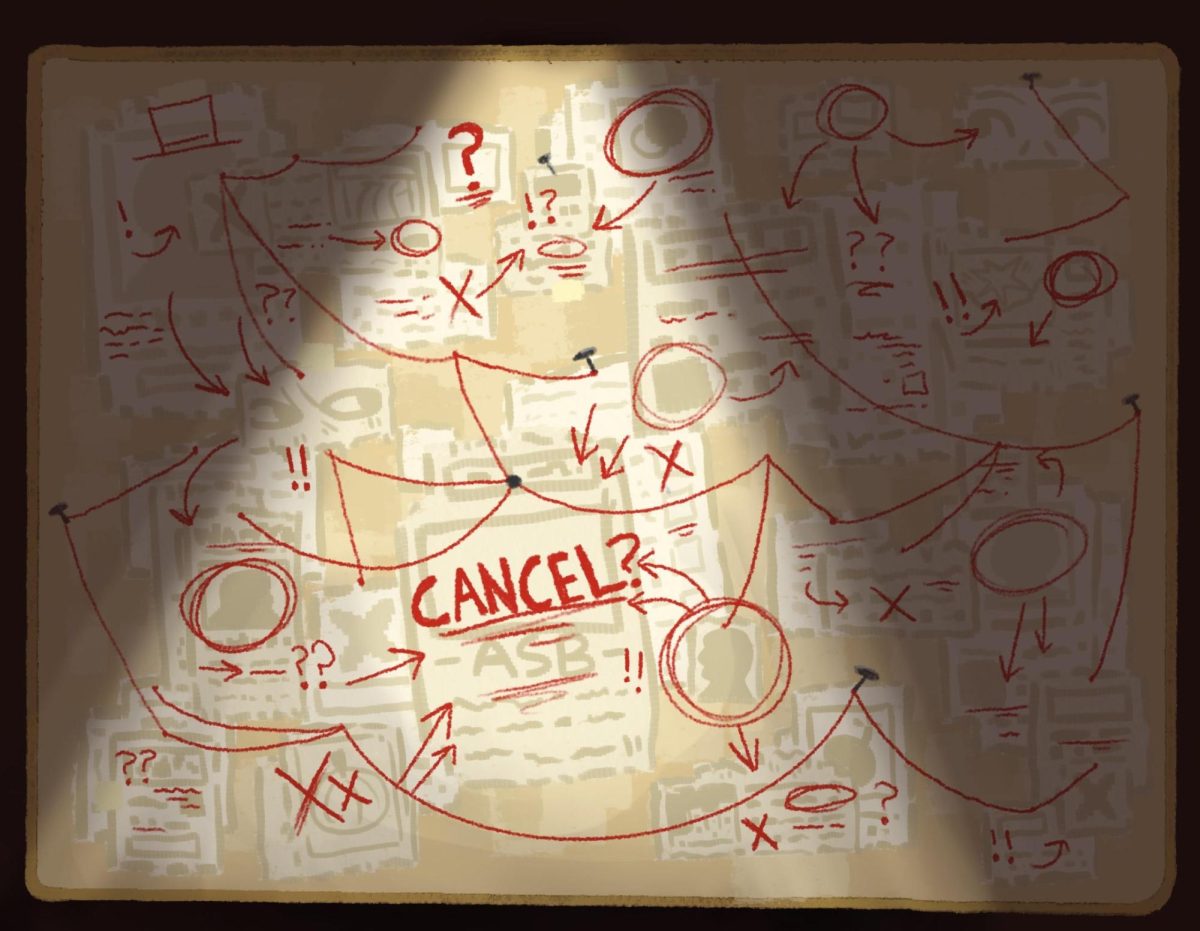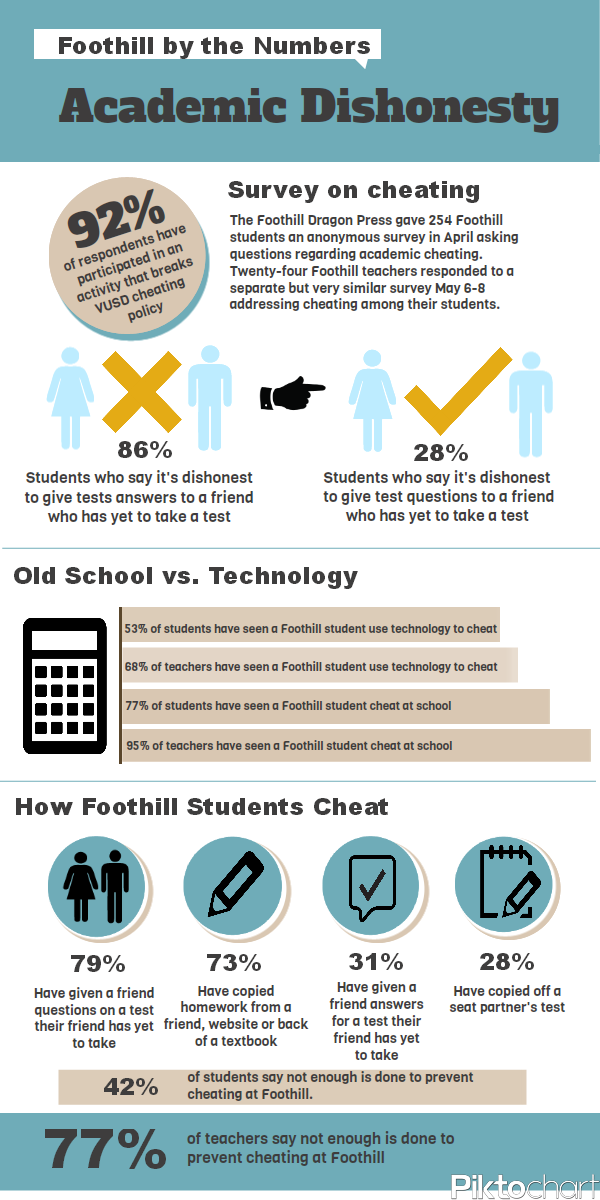
.
[dropcap size=dropcap]I[/dropcap]n an anonymous survey of 254 Foothill students conducted in April by the Dragon Press, 92 percent indicated they have participated in an activity that breaks the Ventura Unified School District’s academic dishonesty policy.
One respondent wrote that cheating at Foothill is “rampant. Like the bubonic plague or small pox.”
Conducted between April 9-24, the student survey was given on paper to students in one college prep and one Advanced Placement or honors English class at the freshmen, sophomore, junior, and senior levels. Twenty-four Foothill teachers anonymously responded to a separate online staff survey offered between May 6-8. (Full results of the staff survey can be found here.)
Questions on the student survey dealt with students’ personal cheating history, observations of cheating, and opinions about the prevalence of cheating on the Foothill campus. Sixty-two freshmen, 56 sophomores, 64 juniors, and 72 seniors responded.
.
Belief that “GPA is more important than integrity”
.
Of the respondents:
- 79 percent said they have told a friend questions on a test their friend has yet to take
- 73 percent said they have copied homework from a friend, website, or back of their textbook
- 31 percent said they have given a friend answers for a test their friend has yet to take
- 28 percent said they have copied off of a seat partner’s test.
“I’ve had students steal things from a Youtube site or literally plagiarize an entire section of a paper from a website,” English teacher Jason Dinkler said.
Dinkler says that he is always disappointed when students choose to cheat rather than ask for help.
“I try not to take it personally because I know that students do it for all kinds of reasons, but it is hard not take it personally,” Dinkler said. “It is frustrating as a teacher, because I feel like they just didn’t take enough time to ask me questions and talk to me about the assignment to really get help, and they just took the easy way out.”
Comments in the survey and in follow-up interviews with students confirmed this belief.
“People just get lazy, and they don’t want to do their homework,” junior Kalin Moore said. “They are so overwhelmed in that one class that they can’t help but rely on cheating.”
Sophomore Sasha Poirier says that she feels her peers are obsessed with getting the perfect grade.
“They’ll do anything to get the A, and teachers can be so harsh on grading…they do anything to get it, even if that means cheating,” she said.
One anonymous survey respondent wrote, “GPA is more important than integrity. Honesty doesn’t get you anywhere.”
English teacher Jennifer Kindred says that she thinks some of her students share this mentality, especially in her AP classes. This belief that honors students feel pressure to cheat for higher grades is reflected at a national level, too, reports show.
“I think the college prep cheaters cheat to pass, not to get a good grade or the highest grade,” she said. “[In Advanced Placement] the stakes are higher and they are invested in a grade over a learning experience.”
The College Board describes AP students as being “academically prepared and motivated to take on college level courses.”
However, the Dragon Press survey found that AP/Honors students are just as likely to cheat on assignments as students in college prep.
Seventy-five percent of the college prep students surveyed admitted to copying homework from a friend, a website or the back of a textbook, and 72 percent of AP/Honors students said the same.
Sophomore Alejandro Torres says he agrees that some students prioritize grades over learning
“As long as they can get the grade, nothing else matters, so they resort to cheating,” Torres said. “In high school, you sort of get the morality beaten out of you, and you think cheating is your only option…for some it becomes second nature.”
.
Pressure to be admitted to college a factor
.
Senior Vanessa Lopez says she thinks pressure to be accepted by a quality university is a main motivator for cheaters.
.
“I think [college] is the main reason, especially here at Foothill where there is so much pressure to get into a good college,” she said. “At Foothill your best isn’t always good enough, and [cheaters] think the only way to do well is to cheat.
.
National university admissions statistics show that college acceptance rates have decreased in the last decade. In addition, the average high school student’s GPA has gone up, increasing competition for the decreasing number of positions.
Foothill’s career specialist Linda Kapala says she is concerned that students cheat in order to improve their college applications.
“It is very sad for me to hear that, especially because I do think that if a student is cheating eventually they will get caught,” Kapala said. “Colleges won’t look at your application if they find out that you lied on it…it can be a life-changing thing to get caught up in.”
Senior Nicki Fox says that she has heard of Foothill graduates who cheated their way through high school.
These students obtained tests and assignments that teachers reuse from their friends who had taken the class the previous year, she said. Using these old exams and projects, they were able to cheat their way to good grades in certain classes.
“We, as teachers, need to figure out ways to recognize and really make it clear to students that this is cheating, and I think that if we were more proactive with it then we would actually see less of it [cheating],” Villa said.
The survey shows 42 percent of students and 75 percent of teachers believe not enough is being done at Foothill to prevent cheating.
Math teacher Anthony Villa says that he thinks teachers need to clarify with students what constitutes cheating.
“We, as teachers, need to figure out ways to recognize and really make it clear to students that this is cheating, and I think that if we were more proactive with it then we would actually see less of it [cheating],” Villa said.
Spanish teacher Kathy Leaf says she feels teachers often give students too much busywork that is never graded and that students cheat as a result.
“In my opinion, you should never give an assignment that you aren’t going to address…if you aren’t going to look at it and give feedback then they feel like it is pointless,” Leaf said. “If they don’t feel like they are learning then they don’t think that it is cheating.”
Leaf believes that making multiple test forms and giving “meaningful homework” will decrease cheating.
“We are supposed to be this big open-minded, project-based, technologically-based school, and we are now based on packets and worksheets,” she said. “We have to give learning a new meaning.”
.
Technology is changing the way students cheat
Like their counterparts nationwide, Foothill students are using mobile devices to cheat, including taking photos and checking the internet while in class. Foothill’s surveys show:
- 77 percent of students have seen a Foothill student cheat
- 96 percent of teachers have seen a Foothill student cheat
- 53 percent of students have seen a Foothill student use technology to cheat
- 67 percent of teachers have seen a Foothill student use technology to cheat
One respondent said that students will “text their friends for answers during tests,” and another said that they have known students who “go to the bathroom and Google the answers.”
Sophomore Paris Dosch says that she has witnessed students using their cell phones to cheat on tests.
“People will take pictures of their notes with their phones and then say they are using it as a calculator when that’s not what they are really doing,” she said.
Honors physiology teacher Mika Anderson was faced with a cheating incident last year in which the cheater had taken a photo of a test answer key with her phone.
“I had the answer key laid out while I was grading finals, and, while I wasn’t looking, they took a picture,” Anderson said. “All it took was two seconds.”
Anderson said that it was not long before she found out that her security had been breached.
“I felt really disappointed,” Anderson said. “On the whole, I would say that most students want do well and to learn, but there are a few instances [of cheating].”
The cheater received a zero on her final and, due to the weight of the test on her grade, failed the class, Anderson said.
.
Students and staff vary in opinion of what constitutes academic dishonesty
.
Responses to the survey also reflect that administrators and students do not always agree on what constitutes academic dishonesty.
Ventura Unified’s academic honesty policy states that it is “impossible to define every means by which a student may try to manipulate the system in an attempt to obtain higher grades,” and it prohibits any “misconduct by which a student attempts to give the impression of a false student performance.”
Because the district is unable to define cheating for every possible instance, students and staff have developed varying opinions regarding what is considered dishonest in specific scenarios.
One example is the use of Sparknotes, online and print study guides that summarize and analyze novels, as tools for English students.
Sophomore Morgan Castro says that she thinks plagiarizing Sparknotes is considered cheating. She also says that reading Sparknotes instead of the assigned novel can be considered cheating, but that she thinks some of her classmates would disagree and that a majority of her classmates use Sparknotes for that purpose.
“Of course students read Sparknotes instead of the book,” she said “Sparknotes are an easy alternative to long tedious hours of reading the chapters assigned…they are definitely used now and will be in the future.”
Eighty-six percent of the students surveyed said they felt it was dishonest to give test answers to a classmate who has yet to take a test, but only 28 percent felt it was dishonest to give that same classmate the questions instead.
English teacher Karen Rodrigues says it’s cheating to replace reading an assigned novel with only reading Sparknotes.
“If a student reads the book and uses them to support their understanding then it is not different than having a conversation with their teacher,” Rodrigues said. “If they replace reading with it or directly copy word for word and present it as their own ideas, that is definitely cheating.”
Students and staff also disagree on whether it’s dishonest for students to communicate test information between periods.
Eighty-six percent of the students surveyed said they felt it was dishonest to give test answers to a classmate who has yet to take a test, but only 28 percent felt it was dishonest to give that same classmate the questions instead.
Assistant Principal Katie Tedford says that both actions are considered cheating.
“I think that [giving test answers or questions] is giving people an unfair advantage and not following the spirit of the assessment,” she said.
Punishments for academic dishonesty are described in Foothill’s student planner and can include a phone call home, a grade reduction, suspension and expulsion. The severity of the discipline depends on the previous number of infractions.
.
“Ten years to build a reputation… 10 seconds to ruin it”
.
World History and English teacher Dan Fitz-Patrick said that he talks to his students about cheating and hopes they understand the consequences if they get caught.
“I have tenth graders so [I tell them] ‘It’s taken you ten years to build your reputation and it takes ten seconds to ruin your reputation,’” he said.
Assistant Principal Carlos Cohen said that there are only a few students sent to the office for cheating each year, and only one or two cases result in serious punishment.
“A lot of teachers take action and justice in their own classes,” he said. “[Teachers] either anticipate it and cut it off or take active steps to communicate with students and parents.”
Cohen said he believes that many students punished for cheating do not continue to cheat.
“We don’t have many repeat offenders which says that the students make a mistake and learn from it,” Cohen said. “What is important is that students learn from their lesson, take action, and make it right.”
Photo: A survey of Foothill students shows cheating is an ongoing concern for students and staff. Credit: Aysen Tan/The Foothill Dragon Press

